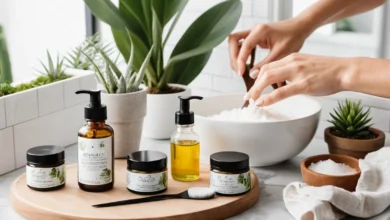Quick Fitness Hacks to Fit Exercise into Your Busy Schedule

Finding time to exercise in a busy schedule can be challenging, but it’s not impossible. With a few smart fitness hacks, you can fit in quick workouts that keep you active and healthy, no matter how packed your day is. Here’s how to make exercise a seamless part of your daily routine.
1. Prioritize Short Workouts
You don’t need hours at the gym to stay fit. Focus on short, high-intensity workouts that you can complete in 15-20 minutes. High-Intensity Interval Training (HIIT) is perfect for a quick but effective workout that burns calories and builds strength in a short amount of time.
2. Use Micro-Workouts Throughout the Day
If you can’t find a solid block of time to work out, break it up into micro-workouts. These are brief exercises you can do in a few minutes throughout the day, such as squats while brushing your teeth, push-ups during a break, or a quick walk around the block.
3. Combine Exercise with Daily Tasks
Turn everyday activities into workout opportunities. For example, take the stairs instead of the elevator, walk or bike to work, or do calf raises while cooking. These small changes add up, helping you stay active even on the busiest days.
4. Make Use of Waiting Time
Waiting in line, on hold, or for an appointment? Use that time to sneak in some exercise. Do leg lifts, stretches, or standing marches to keep your body moving. These small bursts of activity help you stay active without interrupting your day.
Click next to read more





